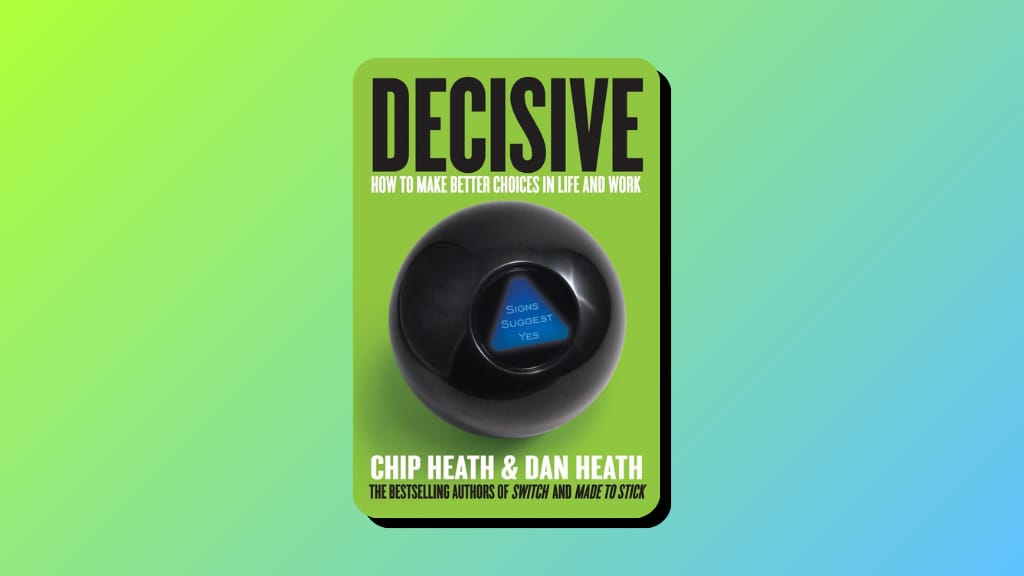- Book Notes
- Posts
- Decisive by Chip Heath & Dan Heath
Decisive by Chip Heath & Dan Heath



“Success emerges from the quality of the decisions we make and the quantity of luck we receive. We can't control luck. But we can control the way we make choices.”

“Any time in life you’re tempted to think, ‘Should I do this OR that?’ instead, ask yourself, ‘Is there a way I can do this AND that?”

“When people have the opportunity to collect information from the world, they are more likely to select information that supports their preexisting attitudes, beliefs, and actions.”

“Studies of the elderly show that people regret not what they did but what they didn’t do.”

“The advice we give others, then, has two big advantages: It naturally prioritizes the most important factors in the decision, and it downplays short-term emotions.” Therefore think: “What would I tell my best friend to do in this situation?”

“The psychologists Amos Tversky and Eldar Shafir offered college students a five-dollar reward for filling out a survey. When given a five-day deadline, 66% of the students completed the survey and claimed their rewards. When given no deadline, only 25% ever collected their money.”

“To make good decisions, CEOs need the courage to seek out disagreement. Alfred Sloan, the longtime CEO and chairman of General Motors, once interrupted a committee meeting with a question: “Gentlemen, I take it we are all in complete agreement on the decision here?” All the committee members nodded. “Then,” Sloan said, “I propose we postpone further discussion of this matter until our next meeting to give ourselves time to develop disagreement and perhaps gain some understanding of what this decision is about.”

“One rule of thumb is to keep searching for options until you fall in love at least twice. If you’ve only identified one good candidate for a job, for instance, you’ll have the strong urge to talk yourself into hiring her, which is a recipe for the confirmation bias. You’ll start to make excuses for the flaws you see: She asked us not to call her old boss for a reference, but that’s probably okay, because the boss sounded like a real jerk …”

“We are quick to jump to conclusions because we give too much weight to the information that’s right in front of us, while failing to consider the information that’s just offstage.”

“Focusing is great for analyzing alternatives but terrible for spotting them. Think about the visual analogy—when we focus we sacrifice peripheral vision.”
Community |
Request a book:
📚 Click here to request a book you want to learn about!
How can we improve the newsletter?
💡Click here if you have an idea!
Introduce yourself:
🧠Click here to take our subscriber survey!
What did you think of this post? |
Hope you enjoyed this post!
Feel free to share the newsletter with friends and family.
Let’s make this world a wiser and better place!
P.S. If you aren’t already subscribed, feel free to subscribe for more wisdom.